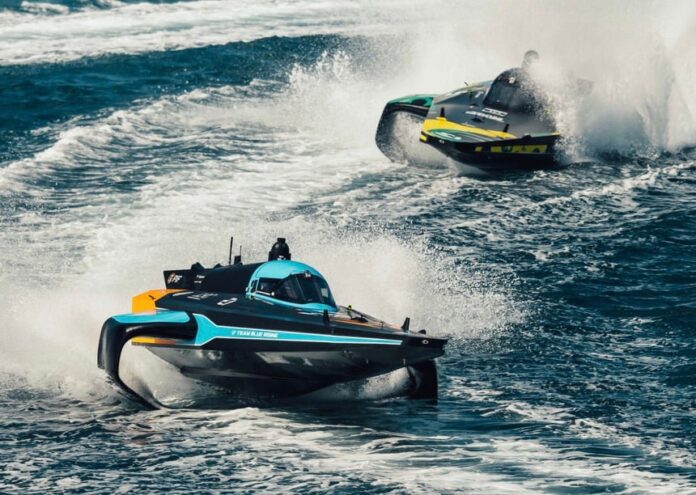The Union Internationale Motonautique-sanctioned E1 Series launches in Lagos on Saturday, marking the first time the all-electric international offshore powerboat racing championship comes to Africa.
The competition features nine teams racing electric hydrofoil boats known as RaceBirds across various global cities. The series made its debut in Jeddah last year and has since expanded to additional locations worldwide.
Pilots conducted water tests with their RaceBird vessels on Thursday. Qualifying rounds are scheduled for Saturday, with the main race taking place on Sunday.
Maritime compliance lawyer Chinaza Egwuatu noted that hosting the event places Lagos alongside prominent waterfront cities, including Monaco, Miami, and Venice. The championship, sometimes called the Formula 1 of the seas, showcases hydrofoil electric boats engineered to travel at high speeds while producing zero emissions.
Notable team ownership includes Team Drogba, headed by former footballer Didier Drogba with backing from Afreximbank, and Team AlUla, owned by basketball player LeBron James. Teams founded by celebrities, including Will Smith, Marc Anthony, Steve Aoki, and Rafael Nadal, are also competing.
Egwuatu highlighted that the Lagos boat racing championship aims to stimulate conversations about decarbonizing marine transport, encourage innovation, and establish Nigeria as a leader in sustainable shipping practices. The event is expected to benefit local hotels, restaurants, and the hospitality sector as international athletes, fans, sponsors, and media arrive for the competition. Waterfront leisure businesses, boat clubs, and eco-tourism ventures are also anticipated to see positive impacts.
The championship illustrates the global transition from fossil fuels to renewable marine transport, creating opportunities to discuss decarbonizing ferries, barges, and coastal vessels in Nigeria, according to Egwuatu. He emphasized that the event offers a platform for local boat builders, energy companies, and startups to examine electric propulsion, battery storage, and charging infrastructure while potentially attracting foreign maritime technology investors.
Egwuatu suggested that regulatory agencies such as NIMASA and the Lagos State Waterways Authority should consider establishing clean shipping standards, incentives, and pilot projects to support green marine adoption. He also pointed to potential research and training collaborations between Nigerian universities, maritime academies, and E1 technology partners to equip seafarers and engineers with relevant skills.
The lawyer stated that hosting the championship underscores Lagos’s emerging status as a global maritime hub and demonstrates Africa’s commitment to cleaner and more sustainable marine transport solutions. He acknowledged the Lagos State Government, Afreximbank, First Bank, the Lagos State Waterways Authority, and other partners for enabling the event.
Egwuatu, whose work focuses on Africa’s blue economy, sustainable shipping, and maritime innovation, views the championship as more than a sporting event. He considers it a catalyst for Africa’s maritime resurgence that connects innovation, sustainability, and economic growth. His practice centers on regulatory compliance, trade facilitation, and the relationship between maritime law and economic development.

